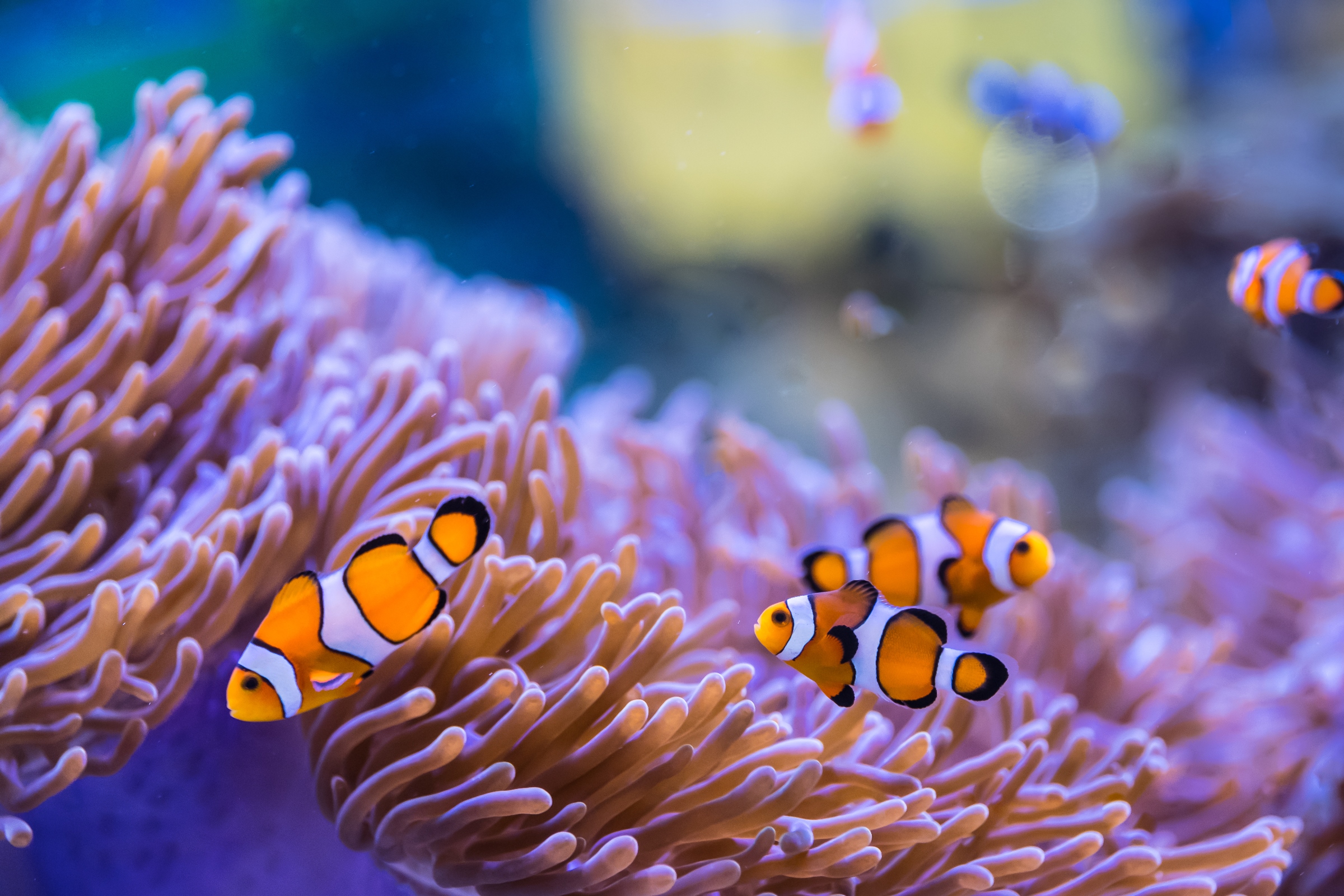Sea Anemones are widely-recognized creatures of the ocean. Though they have a reputation for being dangerous, they pose little danger to humans. Sea Anemones can be found at all depths and sizes, usually near coral reefs or seagrass beds.
Contrary to popular belief, these intriguing sea creatures are not as dangerous as you might think! Let’s explore what you should know about them!
Learn why Sea Anemones are more than just pretty faces – discover why they’re essential to our oceans and marine life today!
Where Do Sea Anemones Live?
Sea Anemones can be found in a variety of habitats, from coral reefs and seagrass beds to rock faces. They’re found at all depths – some even live on the ocean floor!
As stationary creatures, Sea Anemones form colonies where each organism contributes towards their species’ survival.
You might think these creatures wouldn’t move much… but that wouldn’t be true! Sea Anemones have been known to cover an inch per day on average!
What Do Sea Anemones Eat?
Since Sea Anemones are stationary creatures, they have many predators. When feeding on plankton, the Anemones use tentacles to capture it and digest any meaty parts before regrows the lost tentacles.
If prey is too large to be eaten whole, Sea Anemones may digest the larger parts for sustenance and then regenerate lost tentacles.
Sea Anemones have also been known to consume crabs, urchins, mackerels, shrimp and fish! It’s incredible that something so small could consume such large creatures!
What Other Creatures Look Like Sea Anemones?
Sea Anemones and corals share many characteristics. Both invertebrates can survive in a variety of environments and possess stinging cells known as nematocysts, though corals typically live together in colonies or reefs while Sea Anemones often exist on their own.
Sea Anemones and jellyfish share many characteristics; both invertebrates that can sting with tentacles. But unlike jellyfish, Sea Anemones don’t possess the stinging cells characteristic of them, so unless you come into contact with one you should be fine!
What Role Do Sea Anemones Have in the Ocean?
Sea Anemones can often be found on coral reefs, seagrass beds or rocky surfaces where other marine creatures live.
They have a symbiotic relationship with zooxanthellae algae which converts sunlight to energy that the Sea Anemones then use for their own needs!
Sea Anemones provide food to many marine creatures. Crabs, sea urchins and shrimp enjoy eating them as do larger fish and birds!
Can Sea Anemones Eat Humans?
No, Sea Anemones cannot eat humans due to our size. Instead they pose little threat and even form part of the food chain as a source for larger creatures.
Even though you should avoid touching a Sea Anemone, it’s unlikely they’ll sting you unless you startle or disturb them on purpose. You can tell whether or not they intend to sting by looking at their tentacle tips; if present, most won’t sting you; instead, they may open up in defense if startled!
Can You Touch A Sea Anemone?
Sea Anemones can be touched, but only with caution!
Their tentacles may sting you and cause redness or irritation if not handled carefully. Plus, if not handled carefully enough, the tentacles might break off and get stuck in your skin.
If you’re interested in seeing a live Sea Anemone up close and personal, take a boat trip out to coral reefs or seagrass beds. You might even find one in an aquarium! They are one of the most popular home aquarium species, so if yours is nearby then that would be an excellent opportunity to get up close with this stunning fish!
Who Discovered Sea Anemones?
Bartholomaeus Naunius, a German scientist, is credited with discovering Sea Anemones in 1670. Although he was the first to write about them in a book, they had likely been around for thousands of years prior to that!
How Poisonous Are Sea Anemones?
Sea Anemones are highly toxic to fish, urchins and other invertebrates in the ocean. If you’re ever stung by one of these sea monsters, seek medical assistance immediately or at least rinse your skin in clean water!
Even if you don’t feel it immediately after being stung by a Sea Anemone poison, the pain, redness swelling and itching could persist for days after exposure.
Sea Anemones are not poisonous to humans! While they can sting us like other invertebrates, their stings don’t cause as much damage.
Therefore, Sea Anemone poison isn’t nearly as hazardous for us as it is to fish and other marine life.
Sea Anemones and Clown Fish
Sea Anemones and Clown Fish go together like peanut butter and jelly!
The Clown Fish is the primary host for these Sea Anemones, having an intimate relationship with it that benefits both parties: the Clown Fish can hide among its tentacles for protection while using its host as a means to harvest more food.
This mutualistic arrangement results in many benefits for both creatures involved.
How Can You Keep Sea Anemones in Captivity?
Sea Anemones are hardy creatures that can be kept successfully in captivity! You can find them at your local pet store or aquarium, and if you want to keep one at home, you can even purchase them online!
Tips for Caring for an Aquarium Sea Anemone:
- Maintain your room temperature between 70°F and 80°F (21°C and 27°C).
- Provide a host fish such as a Clown Fish or an Urchin and plenty of live rock for hiding.
- Verify the water is free of chemicals, toxins and metals.
- Be very cautious when adding new sea life – they can be delicate!
Are Sea Anemones Beneficial for Your Fish Tank?
Sea Anemones make great additions to any fish tank!
Though they may seem strange in the beginning, with proper equipment they can become exciting pets that you will enjoy for years.
Sea Anemones typically grow from coral reefs and seagrass beds, similar to the conditions tropical fish require to thrive!


